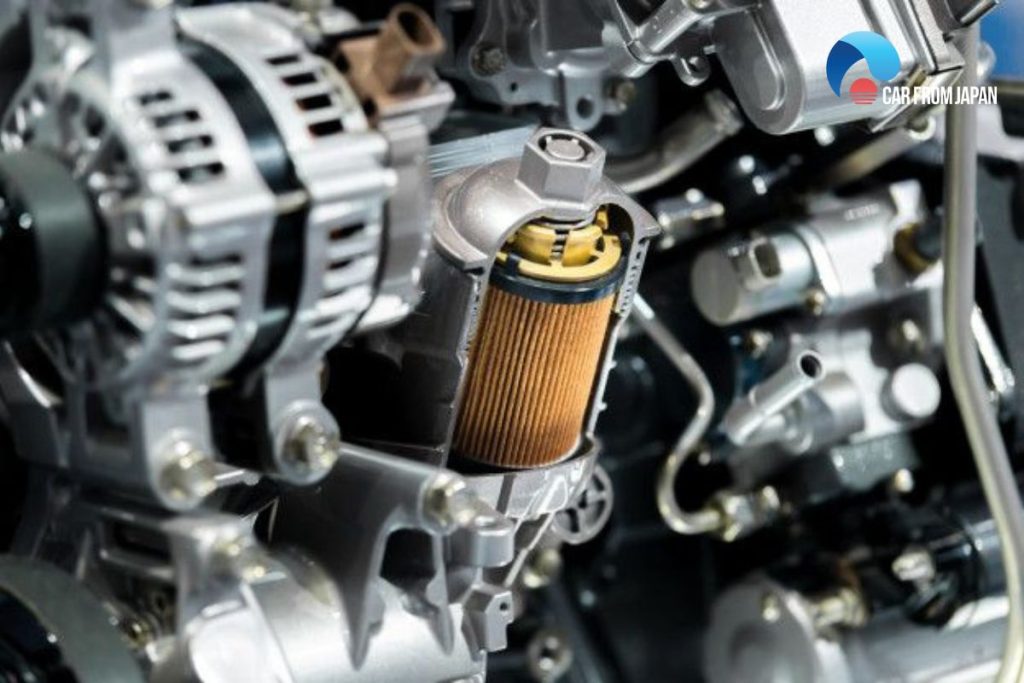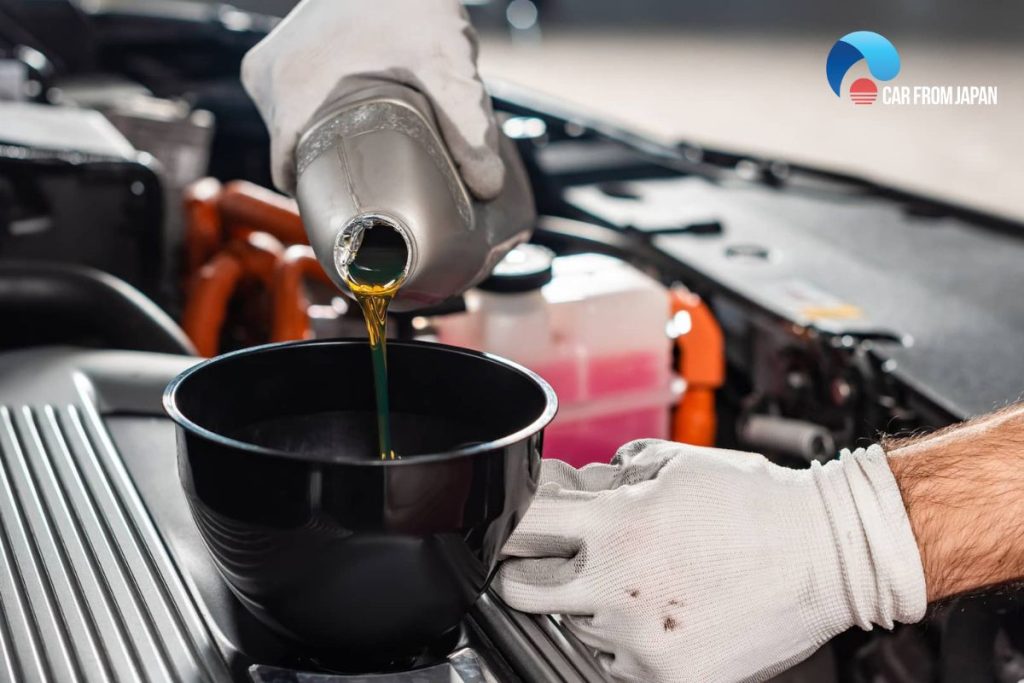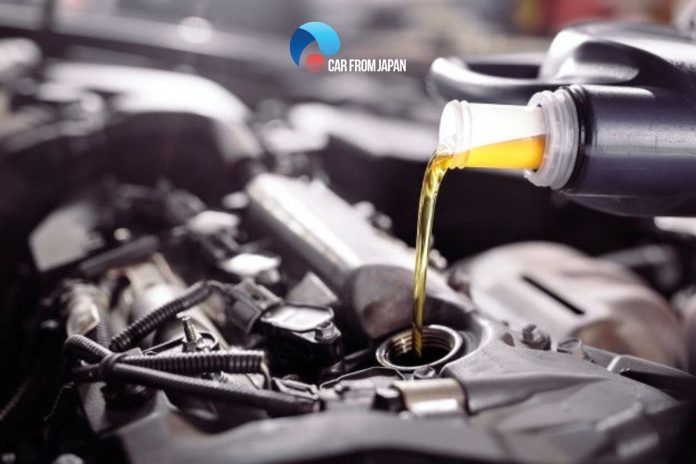The engine oil should be changed every 3000 to 5000 miles or following the manufacturer’s recommendation to make sure your car operates smoothly. That is the advice of experts for every car owner.
But the problem is: If your car doesn’t drive frequently or sits too long in your garage due to some reasons, is this standard still true in these cases? Let’s take a close look at how long does oil last in a car not driven?
Contents
- Does Car Oil Expire?
- How Long Does Oil Last In A Car Not Driven?
- What Happens If You Don’t Get An Oil Change?
- Factors Affecting The Service Life Of The Engine Oil
- How To Detect When The Engine Oil Has Expired?
- FAQs on How Long Does Oil Last In A Car Not Driven
- Does engine oil expire even if the car is never started?
- Can engine oil separate or settle if the car isn’t driven for months?
- Why does oil in a car not driven break down faster than oil still sealed in a bottle?
- If a car isn’t driven, is it better to change oil by mileage or by time?
- Does synthetic oil last longer than conventional oil in a car not driven?
- What’s worse for oil health: a car that sits untouched or one that’s occasionally started but not driven?
- Could old oil cause a no-start problem after months of sitting?
Does Car Oil Expire?
Engine oil is a special liquid, you will find it like honey, thicker than water with a certain viscosity. It is composed of two main components, petroleum-based and additives. So does motor oil expire?
Like other chemicals, time will change the structure and chemical properties of the engine oil so each type of engine oil will have a certain shelf life.
Normally, engine oil will last 5 years from the date of opening the cap. Most oils are manufactured and sold, and most often have a batch number and manufacturing date, but often no expiration date.
So we should observe the production date and calculate the expiration date ourselves. Most oils have a shelf life of about 2-5 years after manufacture, depending on the engine oil.
However, determining if the engine oil is damaged is simply based on the expiration date indicated on the packing. In addition to the expiration date, factors such as extreme temperature changes, oxidation, and synthetic additives in your oil should also be taken into account.
How you store it also affects whether it can expire early. How long your engine oil will last will depend on the type of oil you’re using and how you store it.
For example, synthetic oils containing synthetic additives perform better under high temperatures. This means they will also outlast any other conventional engine oil.
Unopened engine oil (both conventional and synthetic) will last a long time because it is completely sealed, minimizing oxidation.
However, the period of 2 to 5 years is the life of the engine oil after you have opened the box, so when we have added the oil to the car to work, will this number remain the same?
Our answer is that you should change the oil every 12,000 – 16,000 km or 6 to 12 months to give your car the best performance.
How Long Does Oil Last In A Car Not Driven?

The oil is less consumed itself, but in the oil, there are many additives that perform different functions such as cleaning, anti-wear, anti-rust, anti-oxidation, and anti-foam.
When performing these functions, these additives are gradually burnt and used causing the oil to degrade and need to be replaced.
So even though your car doesn’t drive a lot, the oil stored in the engine for a long time is also easily damaged.
Therefore, in addition to the number of mileage, the automakers also recommend that you should change the oil twice a year.
So if after 6 months or one year, your car has not reached the specified mileage, it still needs to change the engine oil. A question “Does engine oil go bad if it has been sitting in your engine for a long time?”.
The oil that has been stored in the engine for too long is likely to oxidize and cause the formation of deposits at the bottom.
Oxidation can also lead to the formation of acids in the engine, which can cause corrosion of some parts. Our answer is you should replace the oil every 6 months even when your car is not driven.
Over time, the oil will no longer ensure the ability to lubricate and protect the engine as before. Therefore, to ensure that the engine is always operating in the best condition, car owners need to regularly change and check the oil.
Oil change time is often recommended by manufacturers based on the number of mileage and specific operating time.
However, drivers also need to pay attention to factors such as the age of the vehicle, operating environment conditions, and driving habits to determine the most appropriate time.
What Happens If You Don’t Get An Oil Change?
Forgetting to change the engine oil or replacing the oil beyond the specified time not only reduces operating performance but also causes many other serious problems that reduce the lifespan of your engine.
Debris buildup
During engine operation, impurities and deposits will gradually accumulate in the oil. Besides, over time, the oil filter is also clogged and the old oil will pass through the drain valve into the filter.
The additive components contained in the lubricant with the effect of inhibiting rust, reducing wear will be ineffective and the lubricating ability is no longer good. Therefore, the engine will wear out if you do not change the oil regularly.
Reducing the friction
The viscosity of the oil will decrease and it will cause reduced friction on the metal surfaces in the engine. At this time, the engine will work harder and make strong noises during operation.
If you continue to drive your car without changing the oil, it will cause the engine to quickly wear out and significantly lose operating power.
Harmful emissions
The older the oil, the easier it is to burn and produce harmful emissions into the environment.
Therefore, changing the oil on time will help minimize environmental pollution because the new oil is less likely to ignite and accumulate dirt, limiting emissions.
According to experts, changing the oil periodically will prolong the lifespan of your engine. For new cars, the first oil change should be 1,000 km and every next 5,000 km will change the oil for the car.
In addition, drivers should change the oil filter in a cycle of two oil changes – once the oil filter is changed, or after 10,000 km, both the oil and the new oil filter will be changed.

Damage the engine
The oil that has been stored for a long time will no longer guarantee its lubricating performance, causing the engine to quickly wear out and affect important machine parts.
Normally, the way to identify a car that needs a new oil change will show symptoms such as the engine making a loud noise, being difficult to start, heating up and consuming a lot of fuel, etc.
Factors Affecting The Service Life Of The Engine Oil
During engine operation, a number of factors can cause the oil to degrade quickly, reducing its ability to lubricate. Here are some common factors that affect oil life that drivers need to know:
Oxidation
Oxidation is considered to be the main root of oil quality deterioration during use.
When the engine is operating, the oil will come into direct contact with oxygen in the air and create chemical reactions that change its original properties.
This is called oxidation, if this process occurs at a high level, it will create deposits in the oil.
They accumulate on the pipeline, hindering circulation and reducing the lubricating ability of the oil, thereby causing damage to the engine during operation.
Diluted oil due to the fuel
Lubricants not only have the job of dissipating heat and lubricating the internal components of the engine but also help to seal the gaps, preventing combustible gasses from entering the crankcase with a membrane (thin oil in the cylinder wall).
When fuel is put into the engine, it forms vapors, air particles, or fog-like droplets. They will deposit on the cylinder walls and can mix with the oil to degrade the viscosity.
Contaminated engine oil
Over time, the oil will be contaminated by impurities accumulated over a long time during vehicle operation.
They can be dust in the air, or metal particles formed by the friction between the parts inside the engine, … this is one of the main reasons for the deterioration of the oil properties.
If your car always drives in harsh environmental conditions, the concentration of this impurity will be higher.
Therefore, drivers need to pay attention to choosing the right oil and regularly changing the oil to ensure the engine avoids unwanted damage.
Decomposition due to temperature
This is a phenomenon that occurs when the oil is exposed to high-temperature molecules during engine operation. In addition, the oil is also subject to heating with a very large amount of heat.
However, this decomposition process often depends on the hydrocarbon composition of the oil.
The more complex the hydrocarbon structure, the more easily decomposed under the effect of high temperature.
Read More: How To Check Engine Oil? The Right Ways To Do It!
How To Detect When The Engine Oil Has Expired?
Engine oil that has reached the end of its life or has begun to degrade can be noticed in 3 ways that, although it can be hard to diagnose, are enough to notice.
Production date
Most engine oils have a production batch number and manufacturing date, but often no expiration date. So we should observe the production date and calculate the expiration date ourselves.
Most oils have a shelf life of about 2-5 years after manufacture, depending on the engine oil. Therefore, if the oil has been produced for a long time, it should not be purchased.
Engine oil color
What color should car oil be? The good oil should be amber or bright in color. If you’ve ever used a dipstick, look at the dipstick, and find that the color of the engine oil is dark or cloudy.
If it’s not as clear as it used to be, then the oxidation may have started. This could be due to contamination from moisture or dust in the engine.
Consistency
Engine oil should flow with the right viscosity consistency. If it is too thick or liquid. This suggests that it can deteriorate because of humidity and precipitation.

FAQs on How Long Does Oil Last In A Car Not Driven
Does engine oil expire even if the car is never started?
Yes. Oil degrades over time due to moisture absorption, additive breakdown, and oxidation, even when it just sits in the crankcase.
Can engine oil separate or settle if the car isn’t driven for months?
Additives can settle at the bottom of the pan. Without circulation, detergents and anti-wear agents may not protect properly when you restart the engine.
Why does oil in a car not driven break down faster than oil still sealed in a bottle?
Inside the engine, oil is exposed to air, residual combustion byproducts, and condensation. None of which affect sealed oil bottles.
If a car isn’t driven, is it better to change oil by mileage or by time?
By time. Most manufacturers recommend changing oil every 6–12 months regardless of mileage because chemical aging doesn’t stop when the odometer does.
Does synthetic oil last longer than conventional oil in a car not driven?
Generally yes. Synthetics resist oxidation and moisture better, so they remain stable longer in stored vehicles.
What’s worse for oil health: a car that sits untouched or one that’s occasionally started but not driven?
Occasional short starts are worse. They build condensation and fuel dilution without burning it off, accelerating oil breakdown.
Could old oil cause a no-start problem after months of sitting?
Indirectly, yes. Thickened or degraded oil may strain the starter motor or fail to lubricate properly, making the first startup harder.
So here is the information on how long does oil last in a car not driven. Hope you find this article helpful to some extent!
For more insightful Car Maintenance tips, follow Car From Japan today!



